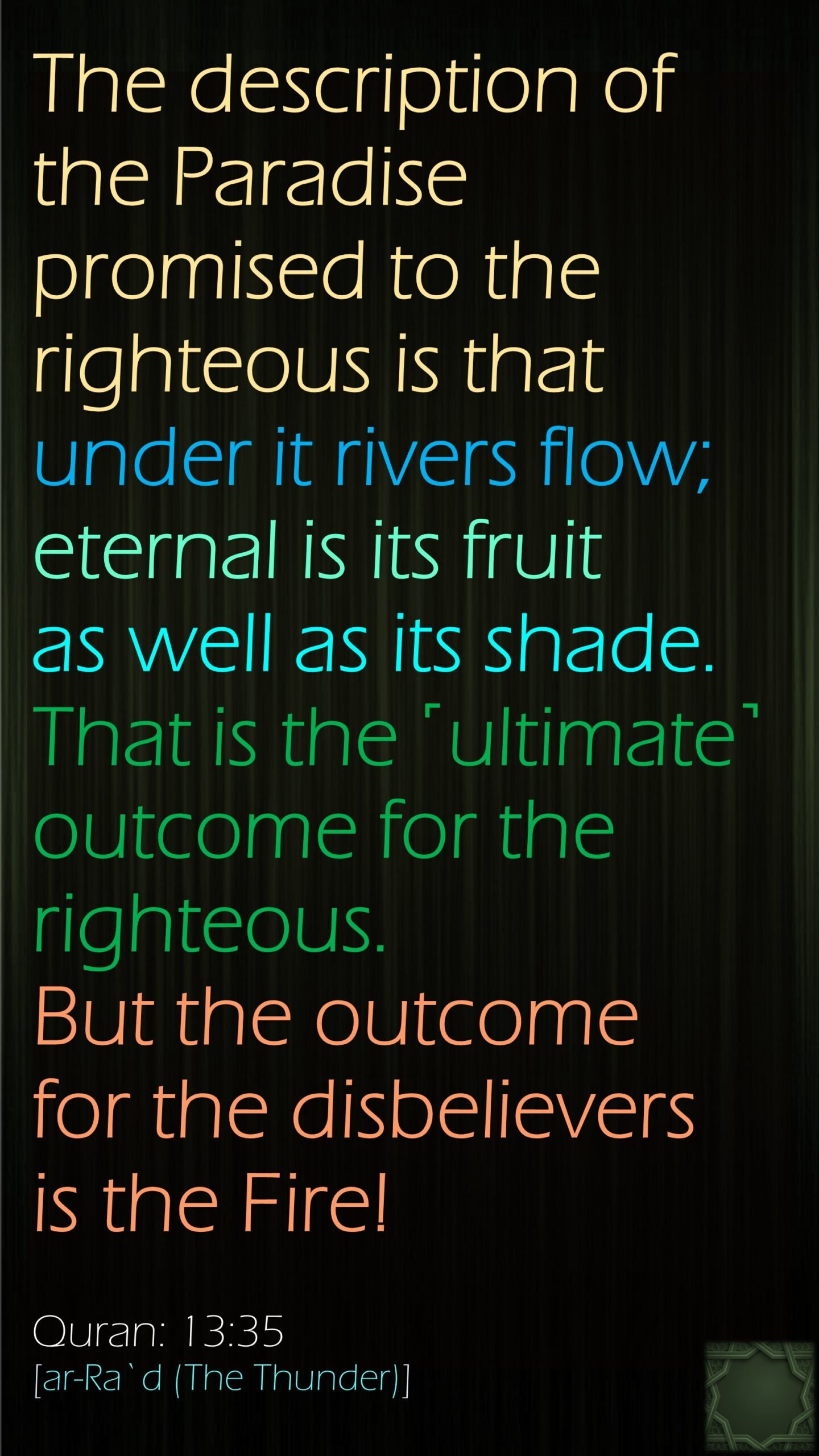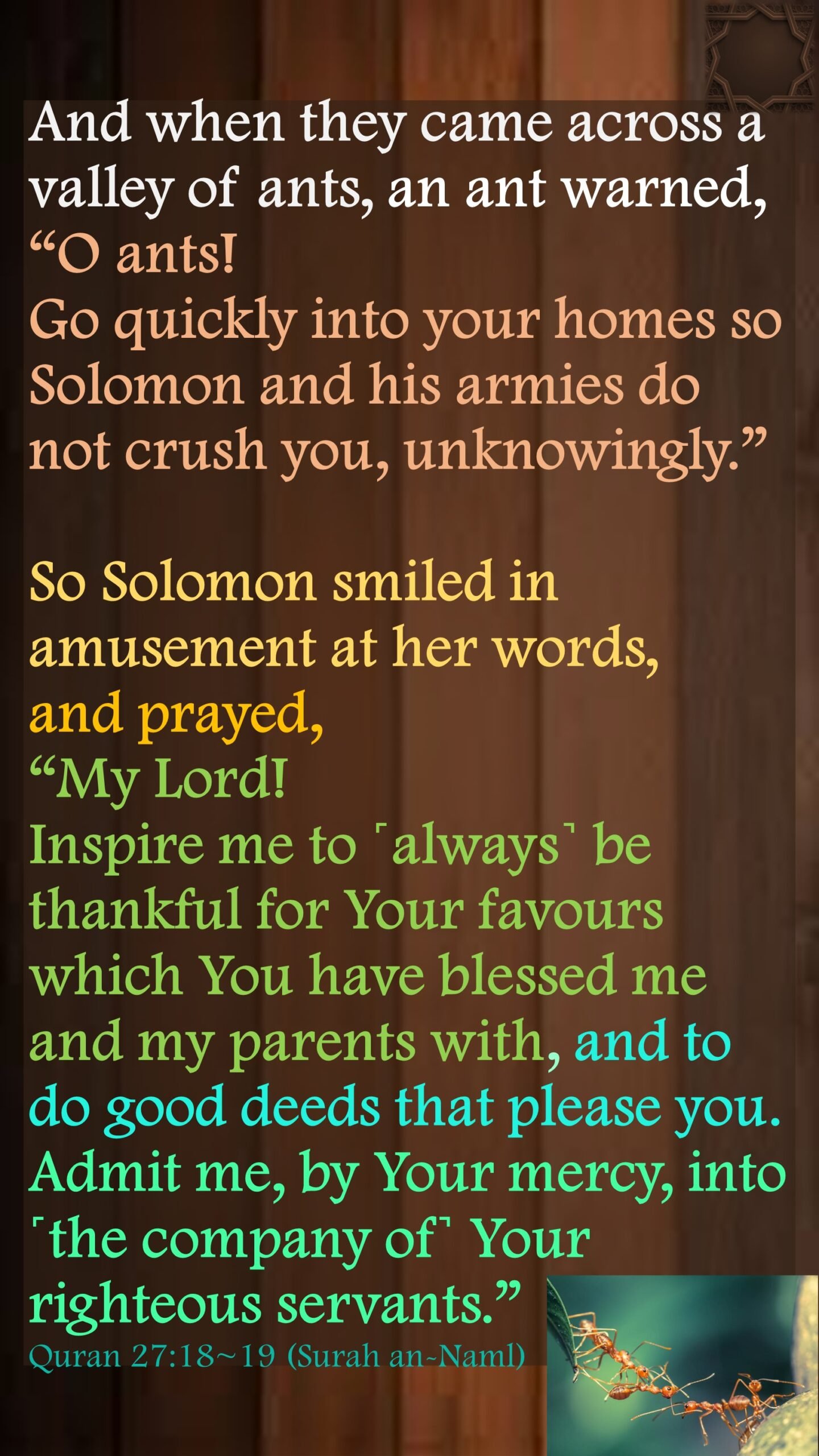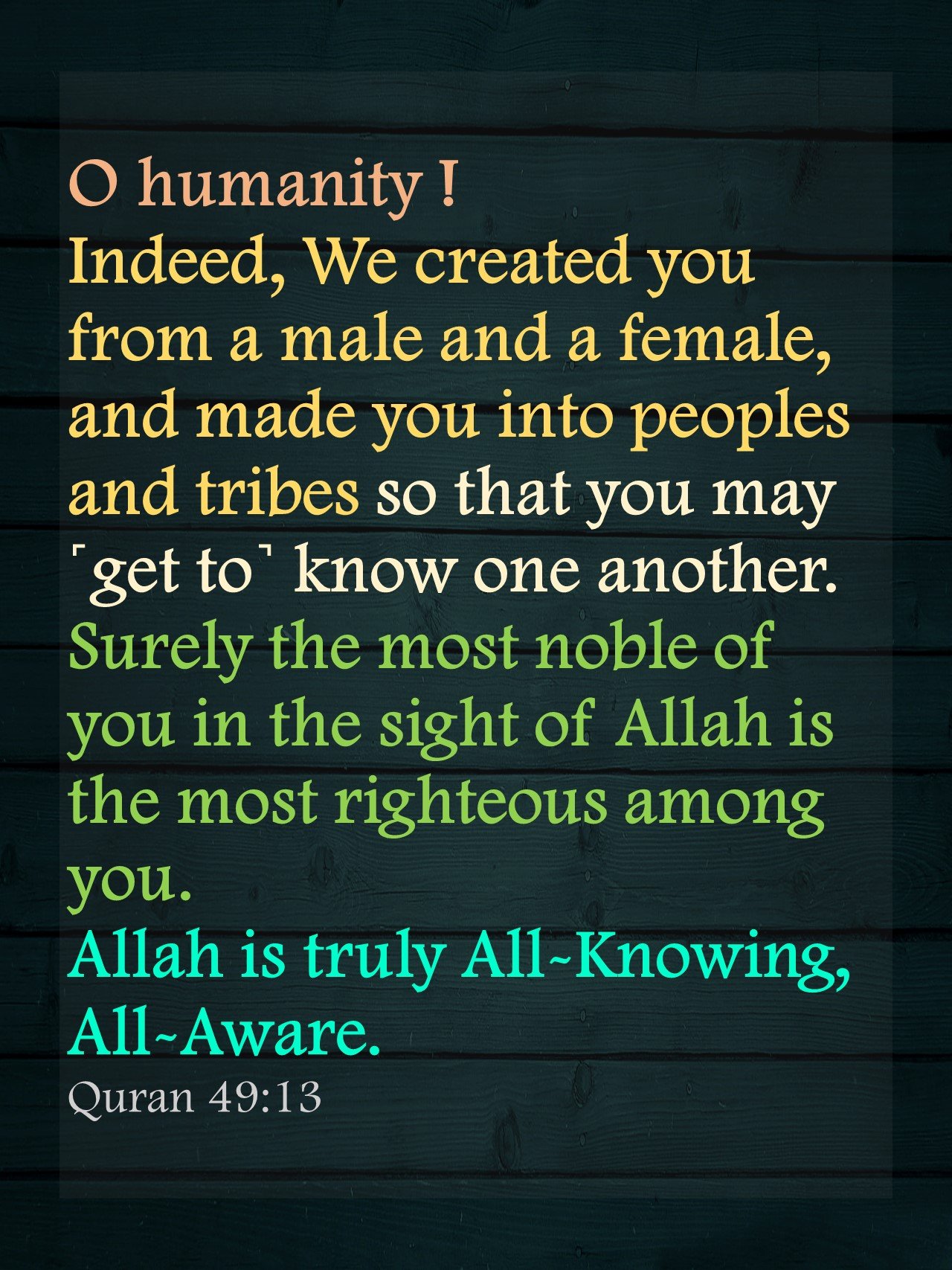Skip to Content
Tag Archives: righteous
- Home -
- Posts tagged "righteous"
( Page2 )
19
Jun, 2024
Hadees, Islam
1376, 1631, 2880, 3651, 4223, Abi-Dawud, Allah, beneficial, book, child, daily, daughter, dead, decease, deceased, deed, deeds, die, end, except, human being, inspirations, islam, islamic, knowledge, knowledgr, Muhammad, Muslim, nisai, ongoing charity, person, pray, righteous, sadaqah jariyah, son, three, Tirmizi
25
Feb, 2024
Islam, Quran
Allah, ayat, daily, disbelievers, eternal, fire, fruit, Heaven, inspirations, islam, islamic, Muhammad, outcome, quran, righteous, river, shade, Surah, triumph, ultimate
14
Feb, 2024
Hadees, Islam, Quran
Allah, ayat, before, bestow, Blessed, companions, company, daily, deth, forgive, hereafter, highest, honorable, inspirations, islam, islamic, martyrs, meet, Mercy, Nisa, people, prophets, quran, righteous, supplication, Surah, truth, women
5
Jul, 2023
Islam, Quran
Allah, avoid, ayat, better, corruption, daily, deed, eternal, evil, evildoer, good, home, inspirations, islam, islamic, paradise, punish, quran, reward, righteous, Surah, tyranny
18
Apr, 2023
Hadees, Islam
Allah, bukhari, daily, delights, ears, eves, excellent, heart, inspirations, islam, islamic, Muhammad, Oneness, PBUH, Prophet, reward, righteous, SAWW, slaves, Soul, Tawheed, think, Uniqueness
7
Apr, 2023
Islam, Quran
admit, Allah, always, an-Naml, ant, army, ayat, Blessed, Chapter 27, company, crush, daily, deeds, favor, grateful, inspirations, inspire, islam, islamic, Jannat, Mercy, paradise, PBUH, please, prayer, Prophet, quran, righteous, servants, smile, Solomon, Surah, thankful, Verse 18, verse 19, you
11
Feb, 2023
Hadees, Islam
action, ayat, daily, Death, deeds, good, inspirations, islam, islamic, quran, righteous, Surah
19
Nov, 2022
Islam, Quran
113, 114, 115, alike, Allah, ayat, book, chapter 3, daily, denied, encourage, evil, forbid, good, inspirations, islam, islamic, judgement, last day, mindful, never, not, people, perfect, prostrate, quran, race, recite, revelations, reward, righteous, Surah, true, upright, verses
15
Aug, 2022
Islam, Quran
Allah, alone, avoid, ayat, Chapter 53, daily, deeds, earth, elevate, evildoers, false, fetyses, forgiveness, good~doers, heavens, infite, inspirations, islam, islamic, Lord, major, minor, quran, righteous, shameful, sins, Surah, syumble, true, Verse 31, Verse 32
31
Jul, 2022
Islam, Quran
All-Aware, All-Knowing, Allah, ayat, daily, female, humanity, inspirations, islam, islamic, know, male, noble, people, quran, righteous, sight, Surah, tribe










